7+ SAMPLE Car Sale Contract
-
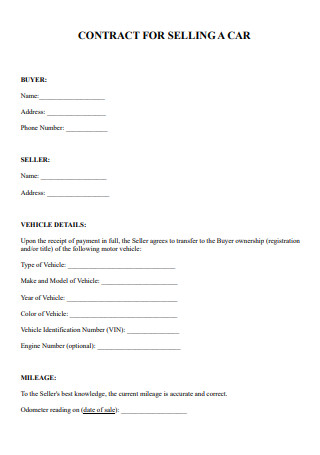
Private Car Sales Contract
download now -
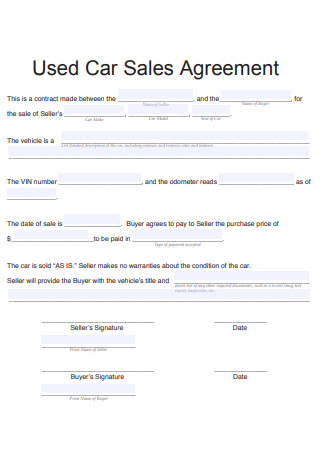
Used Car Sales Contract with Payments
download now -
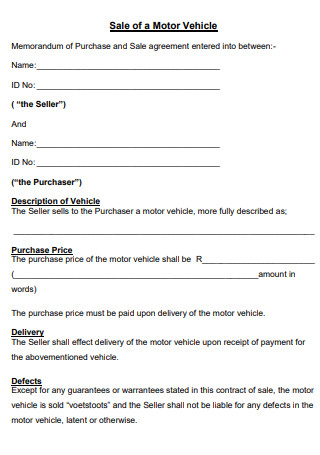
New Car Sales Contract
download now -
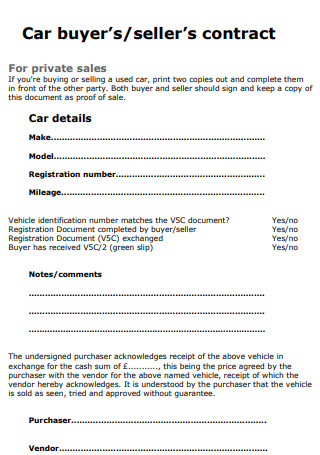
Car Dealer Sales Contract Form
download now -
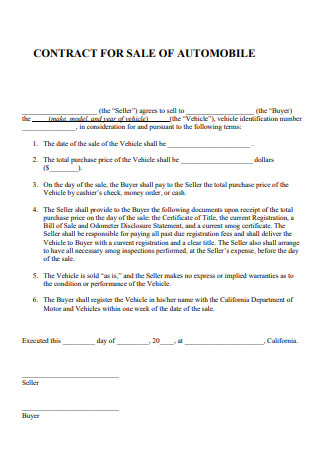
Car Sales Contract Form
download now -
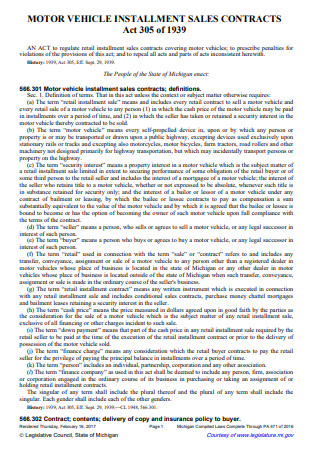
Car Installment Sales Contract
download now -
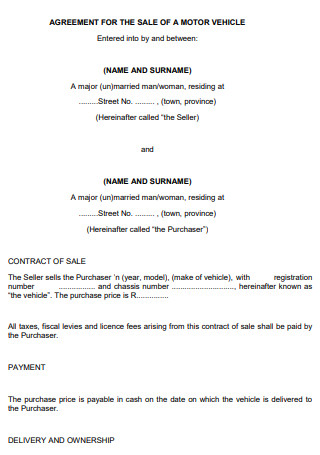
Car Sales Contract Example
download now -
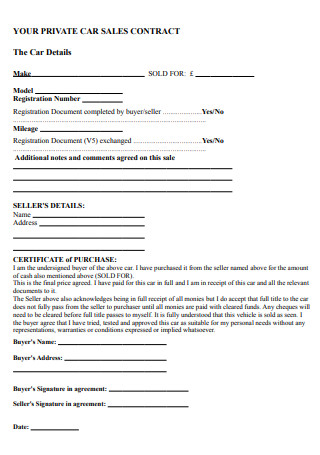
Car Sales Payment Contract
download now
FREE Car Sale Contract s to Download
7+ SAMPLE Car Sale Contract
What Is a Car Sale Contract?
Important Elements of a Car Sale Contract
Mistakes When Writing Car Sale Contracts
Dealership Problems During a Vehicle Sale
Steps in Writing a Car Sales Contract
FAQs
How do I know if it’s time to sell my car?
What is a car trade-in?
What classifies a vehicle as “used”?
What Is a Car Sale Contract?
A car sale contract is a legal document that serves as an agreement between the customer and the dealership (or, in the case of a used car, the private owner) and it clearly explains the details of the sale of the said vehicle from the seller to the buyer. Through this contract, the dealership or the private owner of the vehicle can then clearly describe the terms and conditions of the sale, as well as the condition of the vehicle that is being sold. Aside from the sale of a conventional four-wheeled vehicle such as a sedan, a car sale contract can also be used in the sale of a heavy vehicle such as a truck. This contract should also contain any basic logistics of the sale, such as the price and the delivery date.
Important Elements of a Car Sale Contract
A car sales contract, or a sales contract for that matter, consists of many different types of elements. Here are some that you need to pay attention to:
Mistakes When Writing Car Sale Contracts
Drafting car sale contracts is not an easy job, and sometimes mistakes can be made, which is natural. Here are the mistakes you need to be aware of:
Dealership Problems During a Vehicle Sale
Car dealerships also face problems whenever they try to sell vehicles to prospective customers. Here are some of the problems that they face:
- Getting Better Sales Volume – This becomes an issue since dealerships rely on a high sales volume to repay the costs of procuring these new vehicles on the sales floor. It is critical for them to sell every single automobile since the dealerships need to replenish their inventory with newer and fresher vehicles as quickly as they can get rid of them. This is why the dealerships pull off every tactic they have on their sleeve just to get the customers to purchase their vehicles.
- Outselling Rival Brands – Outselling their rivals can also be an issue within dealerships since they need to outsell their rivals for reputation building. Sales are what keep all automobile brands alive in order to produce new cars to sell. Most dealerships will go to any length to hinder the sales of competing automobile manufacturers, sometimes trying everything to obtain an advantage (whether legal or illegal) over the best-selling automobile companies and their distributors.
- Expectations of Customers – A dealership must satisfy the customer’s expectations, and their cars should also meet the specifications listed in the brochures. Failure to meet the expectations of the consumer will have serious implications. It is critical that expectations are satisfied, or they risk losing a possible lifetime consumer of their automobile brand. Dissatisfaction is bad since it causes the dealership to lose valuable recommendations, which leads to a loss of potential consumers.
- Recouping Expenses – This is also a problem for dealerships since there are almost always zero guarantees that they will recoup their operating expenses that easily. All a dealership does is to make money and acquire fresh inventory for their showroom as well as spare parts for their maintenance department. Not usually the case, and they will incur losses, particularly with low-selling dealerships. The good news is that those automobile purchasers will assist to resolve the issue in a variety of ways, with less openness on the side of the dealership.
- After-Sales – The absence of improved after-sales care is what gives dealerships a bad name. One thing they may do to enhance their services is to provide better conditions, such as free servicing for all components for three years, which will be appealing to potential purchasers. When automobiles are in for service, some dealerships suffer from maintenance concerns and a lack of transparency. Another concern is that they tack on a lot of costs to the customer’s bill. Most dealerships aspire to outperform their competitors in post-sale service.
Steps in Writing a Car Sales Contract
To protect yourself from dodgy dealerships, private owners, and any inconsistencies or disputes that may arise from transactions, a car sales contract is needed. With that being said, here are the steps you can follow when you make one:
-
1. Write Down the Basic Information
This is the first step in writing down the car sales contract. The information that should be included here is the name of the private seller or dealership, the name of the buyer as it appears on their driver’s license, and the contact details of each party. Along with those details, it also pays to include the reason why such a sale is even taking place.
-
2. State the Conditions of the Sale
After writing down the basic information and the reason for the sale, now it is time to state the necessary conditions of the ongoing car sale. In this stage, you must state that you are the owner of the car that is for sale, as well as the amount of cash that you have received. You must also remember to submit any kind of information regarding the vehicle that may affect ownership transfer, such as any liens and encumbrances.
-
3. State the Complete Details of the Vehicle
After stating the conditions of the sale in the previous step, now is the time to provide every important detail of the vehicle that is involved in the sale. Your car sale contract must include comprehensive and accurate information on the vehicle being sold. You must be extremely explicit, and if applicable, specify the trim line. If you possess two cars of the same make and model, you must specify which one is covered by the contract. Additional details of the vehicle that you need to state here include the year, the make and model, the body type, the vehicle identification numbers, the colors, and most importantly, the odometer reading if it involves a used vehicle.
-
4. Indicate the Vehicle’s Condition
After indicating the complete details of the vehicle to be sold, it is also important to do this step, which is to indicate the overall condition of the vehicle that is to be sold. Sometimes, the sellers typically state in the car sales contract that they are selling the automobile in an “as is” condition, which indicates the seller will not modify the vehicle’s condition or provide a guarantee on it. Whatever the condition of the vehicle is during the time of the sale will remain so until the new owner decides to do something about it.
-
5. Verify the Accuracy of the Information
After writing everything down in the car sale contract, proceed to this step. This is an important one and should not be skipped because any erroneous or unclear information that may be present or that is provided in the car sale contract is going to render the deal null and void. As an example, if the mileage stated in the contract is different from the actual mileage reading of the car, then that is enough grounds for the sale to be called off. Make certain that all parties involved completely comprehend the contract’s ramifications and that not a single party is intentionally or unintentionally misrepresenting the vehicle or the amount of money that is involved in the transaction.
-
6. Sign the Contract and Make a Copy
This is the last step of making the contract. In this step, once you’ve verified that all the information that is written down is true and accurate, then the parties involved in the car sale can proceed to sign the contract and date the contract with the date of the final transaction. When signing the car sale contract, it is also good practice to do this in front of a notary. Notaries provide concrete evidence of the authenticity of all the parties involved. After signing the car sale contract, it also pays to keep a copy of it for safekeeping purposes. If any dispute arises, you can then refer to the copy of the car sale contract that you have.
FAQs
How do I know if it’s time to sell my car?
The answer to that is it really depends. For one, the age of the car, the mileage, and its condition may be a driving factor if you need to sell your beloved vehicle. If safety is your priority, and you don’t like driving a rolling hazard on the highway on the daily, and the repair bills prove to be too great than what you can actually handle, then, by all means, you have to let your vehicle go. There’s a lot at stake whenever you go out on the highway, even when you’re driving a new vehicle.
What is a car trade-in?
A car trade-in is essentially selling your used car to the dealer, and the amount that they pay for it gets taken off to the value of the next vehicle that you would like to purchase. This can be advantageous as it enables all the parties to complete the entire transaction in one place. But sometimes, this can be disadvantageous too as you may find that selling your vehicle to a third party will bring more value.
What classifies a vehicle as “used”?
A vehicle is already classified as “used” if it has already been driven more than what is usually necessary for moving a vehicle or road testing it prior to its sale to a new owner. This essentially means that company cars and demo units are under this classification. However, if the title of the vehicle indicates that it is for scraps, then it does not fall under this classification.
Whether you’re purchasing a new or used vehicle, it surely serves as a highlight of your commuting life. More importantly, having an effectively written car sale contract helps and protects the parties involved in the transaction should any dispute arise from it after the sale has been done. In this article, there are examples you can acquire regarding these types of sales contracts and you can use them as a reference when making one.
